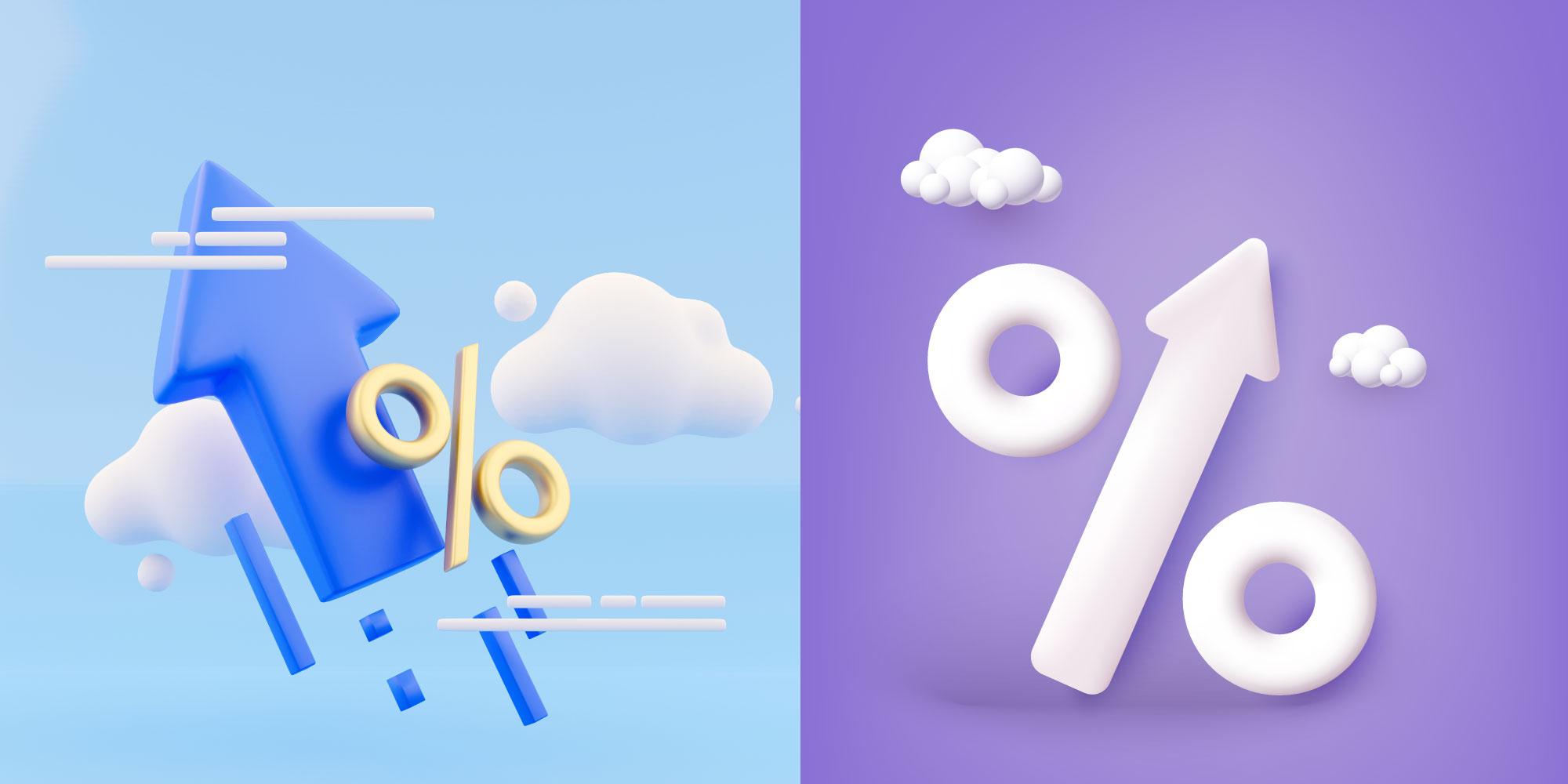
Where do you stand in the floating vs fixed interest rates debate? Confused about why this matters? Deciding between fixed and floating interest rates is crucial as it affects the amount you have to pay as EMIs. Choosing the right type of interest rate allows you to save more on interest payments.
In any discussion about fixed interest vs floating interest rates, you first need to understand them. To understand the meaning and difference between fixed interest rates and floating interest rates, read further.
This rate depends on a benchmark rate set by the lender. The EMIs towards your loan repayment will change accordingly. Simply put, it varies as per market fluctuations.
The lenders set a period after which they will revise the rate of interest on your loan. The lender can change these rates annually, half-yearly or quarterly. Note that the EMI amount that you pay monthly remains the same. The lender only alters the tenure according to the changing benchmark rate.
If you decide to go with these rates, you get to enjoy the following benefits:
There are also certain disadvantages to consider:
This interest rate is fixed at the time of your loan agreement and remains unchanged throughout your repayment duration. However, lenders generally peg it at 1%-2% higher than the prevailing benchmark rates.
As opposed to floating interest rates, you can not avail yourself of reduced interest payments when the repo rate lowers. However, it provides a sense of certainty as your interest outgo also remains unchanged through the tenure.
When you choose a loan with this rate, these are the benefits that you enjoy:
Similar to floating interest rates, these rates have some drawbacks:
Here are a few points of difference to consider when comparing floating vs fixed interest rates:
| Basis of Difference | Fixed Interest Rate | Floating Interest Rate |
|---|---|---|
| High/Low | These are comparatively on the higher side | These rates are generally lower |
| Number of EMIs | It stays fixed as the loan tenure doesn’t change | It may change with any fluctuation in the tenure due to changes in rates |
| Market Fluctuations | They don’t change with market fluctuations | They fluctuate with changes in the market |
| Ideal For | These are a good option for short and medium-term loans | These are ideal for long-term loans |
| Financial Management | Planning and management of finances is easy since the interest amount remains the same | Planning and managing the budget is difficult since the interest amount is subject to change |
At Fibe, you can get an Instant Personal Loan of up to ₹5 lakhs at fixed and competitive rates. You can pay off the loan early and become debt-free faster without any prepayment charges. Download our Personal Loan App from the App Store or Google Play or apply through our website to access easy credit.
It depends on your needs and preferences:
The RBI periodically revises the repo rate based on market conditions. While they affect the floating rates, they bear no effect on the fixed rates.
Yes. Some lenders allow you to shift to floating rates after paying some EMIs.
Repo rates and floating interest rates are directly related. When the repo rate goes up, the floating interest rates also spike and vice versa. So, if the rates go up, the tenure may increase, and if they go down, the tenure may decrease.
Yes, it is an attractive option if you wish to save on interest payments. You may benefit if the lender lowers the benchmark rate.